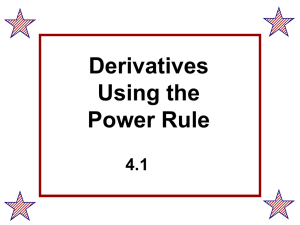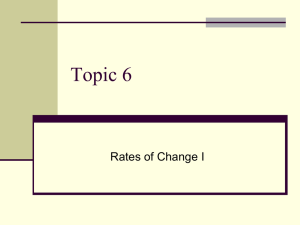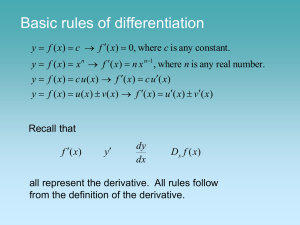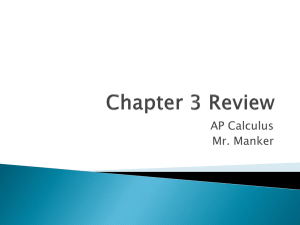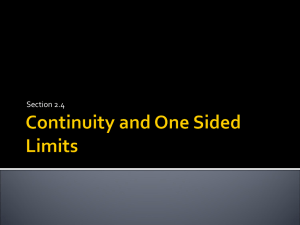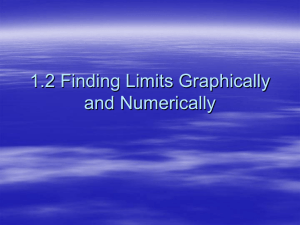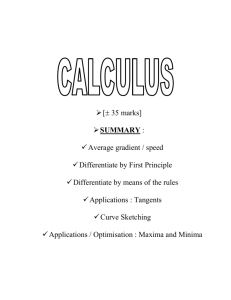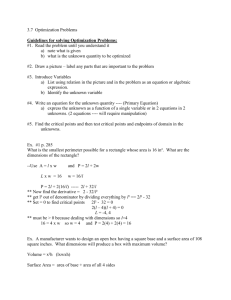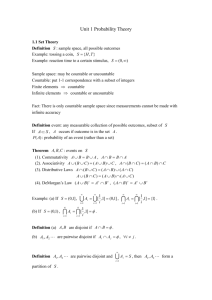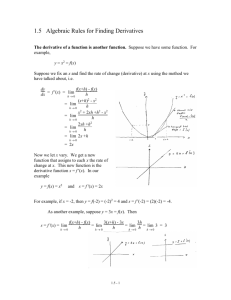Continuity Property of Probability
advertisement
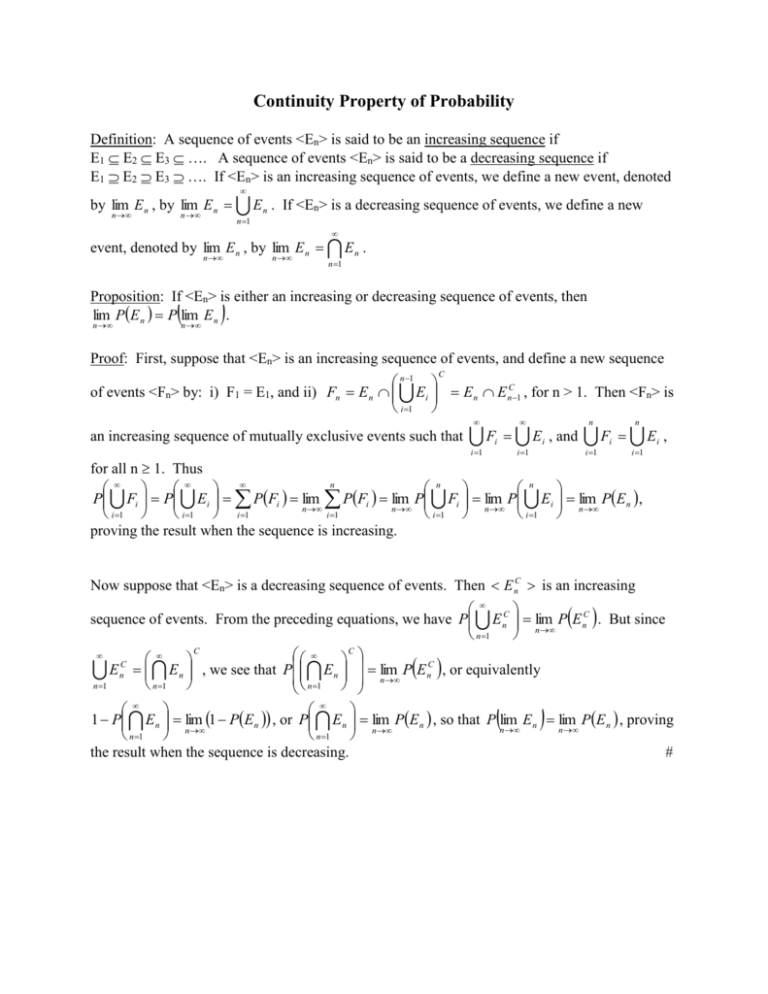
Continuity Property of Probability Definition: A sequence of events <En> is said to be an increasing sequence if E1 E2 E3 …. A sequence of events <En> is said to be a decreasing sequence if E1 E2 E3 …. If <En> is an increasing sequence of events, we define a new event, denoted by lim E n , by lim E n E n . If <En> is a decreasing sequence of events, we define a new n n n 1 event, denoted by lim E n , by lim E n E n . n n n 1 Proposition: If <En> is either an increasing or decreasing sequence of events, then lim PE n P lim E n . n n Proof: First, suppose that <En> is an increasing sequence of events, and define a new sequence C n 1 of events <Fn> by: i) F1 = E1, and ii) Fn E n Ei E n E nC1 , for n > 1. Then <Fn> is i 1 an increasing sequence of mutually exclusive events such that i 1 i 1 Fi Ei , and n n i 1 i 1 Fi Ei , for all n 1. Thus n n n P Fi P Ei PFi lim PFi lim P Fi lim P Ei lim PE n , n n i 1 i 1 i 1 i 1 i 1 n i 1 n proving the result when the sequence is increasing. Now suppose that <En> is a decreasing sequence of events. Then E nC is an increasing sequence of events. From the preceding equations, we have P E nC lim P E nC . But since n 1 n C C C E n E n , we see that P E n lim P E nC , or equivalently n1 n n 1 n 1 1 P E n lim 1 PE n , or P E n lim PE n , so that P lim E n lim PE n , proving n n n 1 n n 1 n the result when the sequence is decreasing. #
